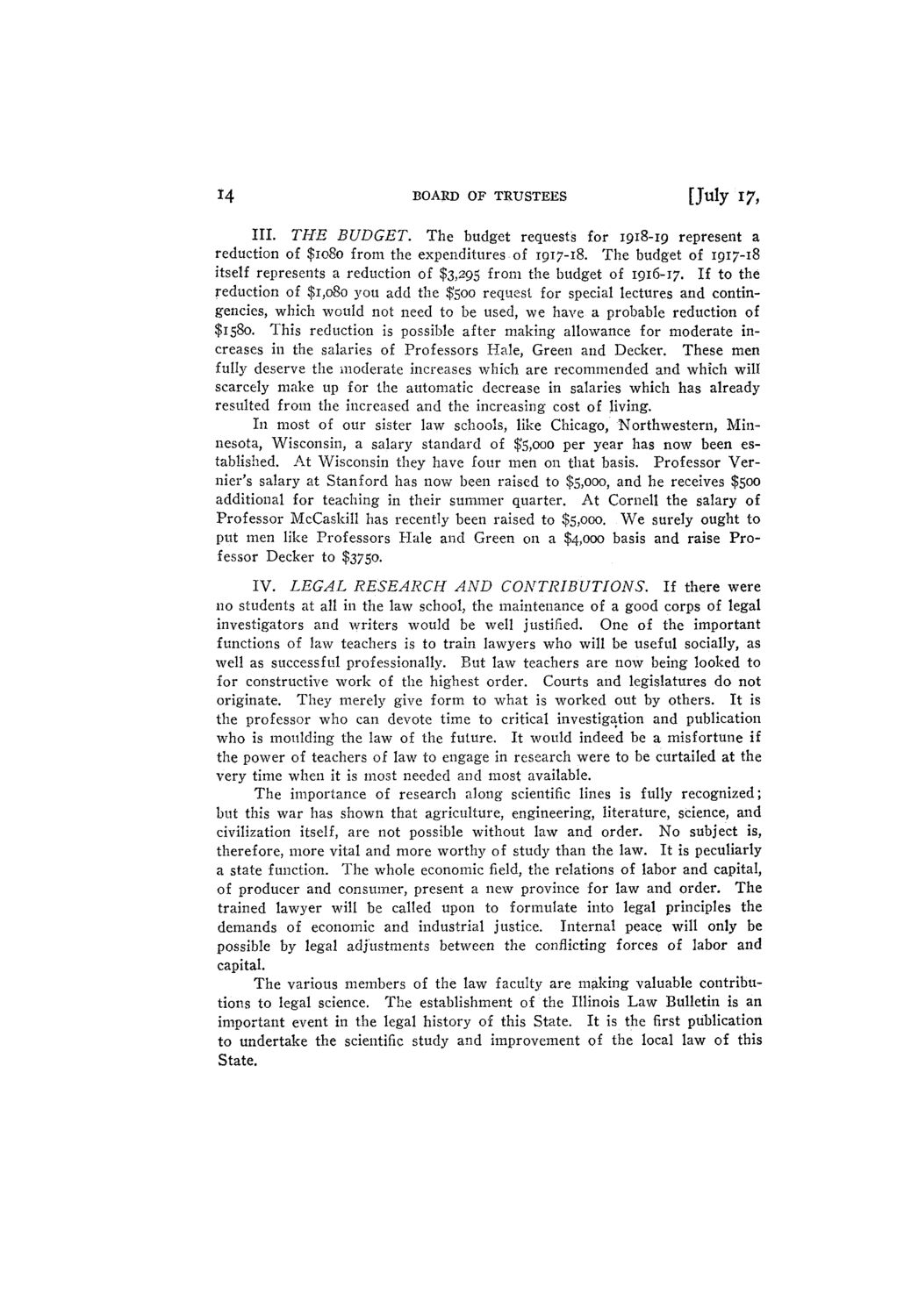| |
| |
Caption: Board of Trustees Minutes - 1920
This is a reduced-resolution page image for fast online browsing.

EXTRACTED TEXT FROM PAGE:
H BOARD OF TRUSTEES [July 17, I I I . THE BUDGET. The budget requests for 1918-19 represent a reduction of $1080 from the expenditures of 1917-18. The budget of 1917-18 itself represents a reduction of $3,295 from the budget of 1916-17. If to the reduction of $1,080 you add the $500 request for special lectures and contingencies, which would not need to be used, we have a probable reduction of $1580. This reduction is possible after making allowance for moderate increases in the salaries of Professors Hale, Green and Decker. These men fully deserve the moderate increases which are recommended and which will scarcely make up for the automatic decrease in salaries which has already resulted from the increased and the increasing cost of living. In most of our sister law schools, like Chicago, Northwestern, Minnesota, Wisconsin, a salary standard of $5,000 per year has now been established. At Wisconsin they have four men on that basis. Professor Vernier's salary at Stanford has now been raised to $5,000, and he receives $500 additional for teaching in their summer quarter. At Cornell the salary of Professor McCaskill has recently been raised to $5,000. W e surely ought to put men like Professors Hale and Green on a $4,000 basis and raise P r o fessor Decker to $3750. IV. LEGAL RESEARCH AND CONTRIBUTIONS. If there were no students at all in the law school, the maintenance of a good corps of legal investigators and writers would be well justified. One of the important functions of law teachers is to train lawyers who will be useful socially, as well as successful professionally. But law teachers are now being looked to for constructive work of the highest order. Courts and legislatures do not originate. They merely give form to what is worked out by others. It is the professor who can devote time to critical investigation and publication who is moulding the law of the future. It would indeed be a misfortune if the power of teachers of law to engage in research were to be curtailed at the very time when it is most needed and most available. The importance of research along scientific lines is fully recognized; but this war has shown that agriculture, engineering, literature, science, and civilization itself, are not possible without law and order. N o subject is, therefore, more vital and more worthy of study than the law. It is peculiarly a state function. The whole economic field, the relations of labor and capital, of producer and consumer, present a new province for law and order. T h e trained lawyer will be called upon to formulate into legal principles the demands of economic and industrial justice. Internal peace will only be possible by legal adjustments between the conflicting forces of labor and capital. The various members of the law faculty are making valuable contributions to legal science. The establishment of the Illinois Law Bulletin is an important event in the legal history of this State. It is the first publication to undertake the scientific study and improvement of the local law of this State.
| |